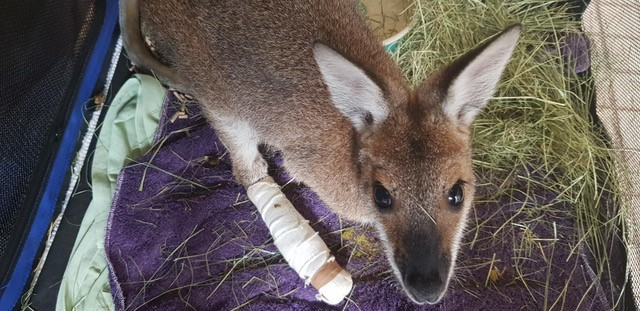WIRES Giving Day - Save the Wild!
September 2025
For emergency rescue support 24/7 please call 1300 094 737

As bushfires rage across NSW on the back of the worst drought in decades our native animals are being severely impacted through lost habitat, starvation and displacement.
More than ever WIRES needs help to rehabilitate the unprecedented number of native animals coming into care as a result of these terrible natural disasters and is asking the public to give their support with a Christmas donation to WIRES (all gifts $2 and over are tax deductible).
As well as looking after drought affected orphaned wildlife already in care, WIRES volunteers are continuing to enter bushfire zones to rescue injured and orphaned animals once the RFS and National Parks and Wildlife Services (NPWS) declare these areas safe to access.
Rescued animals currently recovering in care with WIRES (see images below) include orphaned Eastern Grey joey ‘Myalls’ rescued from the Myall fires with badly burned hind legs. It was touch and go for the first few days but he’s now out of danger and doing well.In the Blue Mountains area, a young female wombat, 'Lara' was found by the RFS in an active fire zone with injuries sustained from a falling tree. The RFS carried her out of the fire zone for collection by WIRES and she was taken straight to the North Richmond vet where xrays showed a fracture on her upper jaw and she was also severely dehydrated. Lara is responding well in WIRES care and will be ready for release in 6 – 8 weeks.
WIRES has the following practical advice on how residents living near the fires zones can help wildlife during and after a bushfire.
For more information email John Grant, WIRES Media Officer, via media@wires.org.au.
Stay in touch and get our regular rescue stories, WIRES updates and a free copy of our 15 Ways to Help Wildlife ebook
September 2025
June 2025
May 2025
April 2025
March 2025
February 2024
July 2023